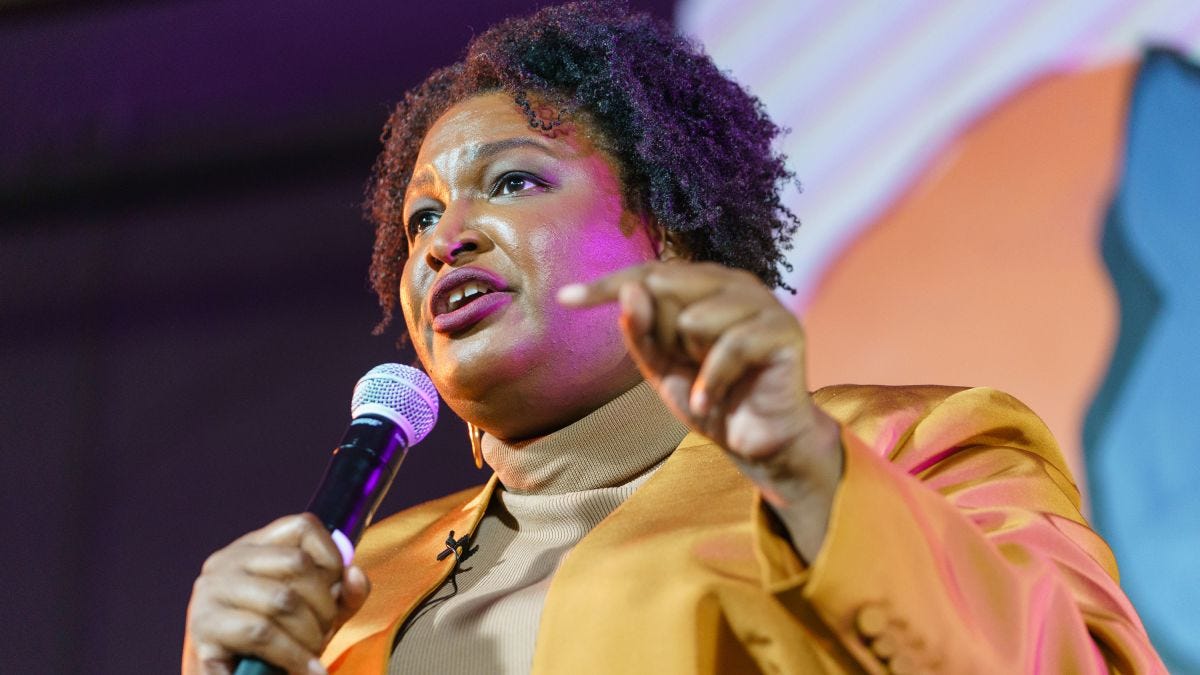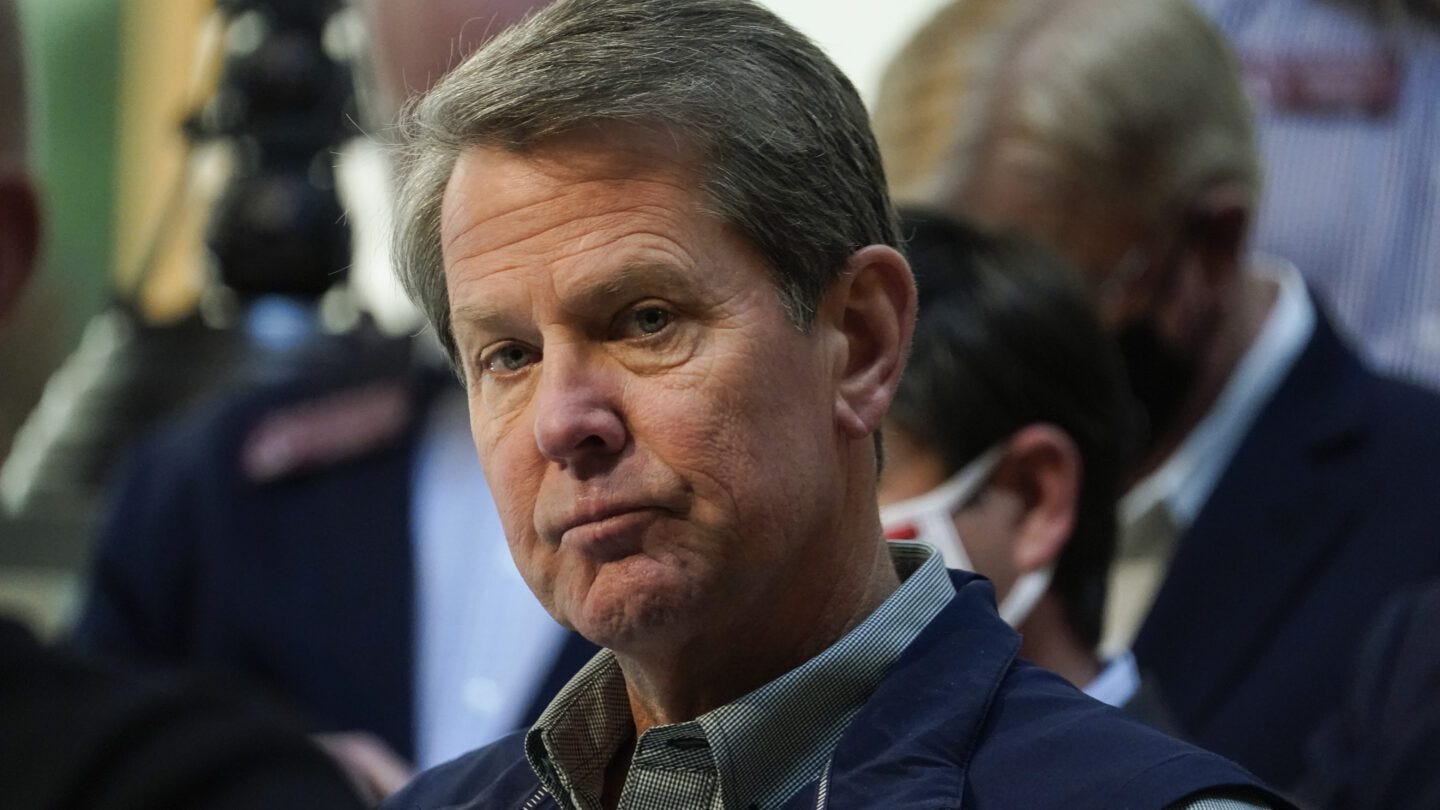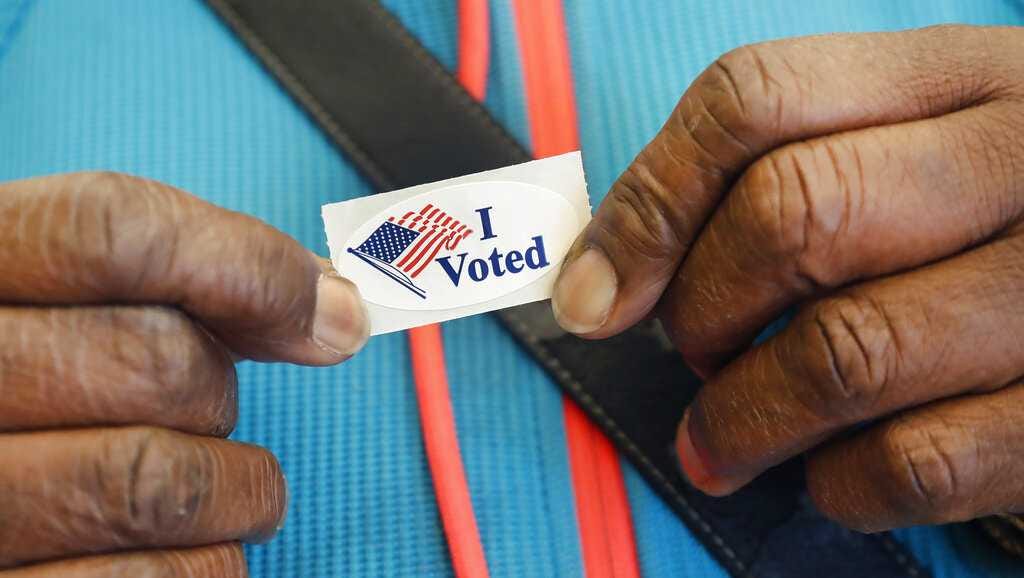Analysis: Why is Stacey Abrams an underdog?
Dems worry as Abrams struggles in rematch with Kemp
When Democrat Stacey Abrams announced in late 2021 that she would mount a rematch against Republican Gov. Brian Kemp, national and local observers salivated at the thought of another close race in the nation’s premier battleground state.
After all, Abrams came within 55,000 votes of defeating Kemp in 2018. Since then, she has emerged as a Democratic superstar. She started a voting rights organization aimed at registering new voters and is widely credited for Joe Biden’s 2020 victory in Georgia, as well as the two Democratic Senate runoff victories in January 2021.
But now, with just six weeks to go until election day, Abrams is widely regarded as an underdog in her second run for governor. Despite her huge fundraising advantage, she continues to trail in public polling. As of Monday, Kemp holds a 5-point lead on the FiveThirtyEight polling average, and a 6-point lead on the RealClearPolitics average.
In recent months, election forecasters such as the Cook Political Report and Sabato’s Crystal Ball have even shifted their ratings in Kemp’s favor. They noted that the contest will almost certainly be close. But with poll after poll showing Kemp above the 50% runoff threshold, they say it’s hard to argue that the Republican incumbent doesn’t have the edge right now.
Abrams herself has been trying to lower the high expectations of her supporters. “I have to work doubly hard to dispel the myth of his leadership and anchor the possibilities that my administration can create,” Abrams said of Kemp in July.
“We have urgent and clear needs, and Brian Kemp is refusing to take action. I’ve got to demonstrate that I can meet him on the battlefield and defeat him.”
So why is Abrams — once viewed as a Democratic rising star, struggling in Georgia as Democrats continue to poll competitively in other states?
1. Trump is gone
Perhaps the biggest reason why Georgia — once a reliably Republican stronghold — emerged as the center of the political universe in the last decade is because of Donald Trump. The former President’s brash style of politics angered moderate Republicans and suburban voters, particularly women.
He also served as the perfect foil for Democrats in Georgia and across the country as the party looked to energize their base in the aftermath of his 2016 victory.
Midterm elections are usually a referendum on the party that controls Washington. And with Trump no longer in the White House, Georgia Democrats are unable to campaign aggressively against the national forces that are driving this year’s elections.
Instead, it’s Gov. Kemp who is campaigning against national politics. Throughout the year, Democrats have consistently polled negatively on economic issues like inflation and gas prices. Kemp has repeatedly slammed Washington Democrats for their handling of these issues, and has warned supporters that an Abrams victory could lead to more of those failed policies on the state level.
Plus, Kemp’s public rift with Trump in the aftermath of the 2020 presidential election might help him come across as moderate to voters who had previously thought that he was too conservative. It’s why you have many Republicans privately dreading the thought of another Trump rally in Georgia a few weeks before election day.
2. The (dis)advantage of incumbency
The 2018 campaign for governor was an open race between two very polarizing candidates. The 2022 race, however, features a Republican incumbent and a Democratic candidate who must now run against his record.
In 2018, Brian Kemp emerged as a villain in the Democratic Party for what they believe was a conflict of interest: he was campaigning for governor while also holding the office that oversees elections in Georgia.
But things are different now. Kemp is no longer the fire-breathing conservative Secretary of State that he was four years ago. Not only is he an incumbent governor, he’s a relatively popular one: a September survey from Quinnipiac University found Kemp with a 50% favorable rating, while 43% viewed him unfavorable.
Incumbent governors rarely lose re-election. And when they do, it’s almost always because they are unpopular. It is going to be difficult for Abrams to convince voters that they should fire a governor that they tend to have a positive opinion of. That is one of the advantages (or disadvantages, depending on who you ask) of incumbency.
3. Lagging with Black voters
African-American voters, especially ones in the south, have for decades been the backbone of the Democratic Party. You can argue that President Joe Biden would not be in the White House right now if Black voters had not turned out in record numbers. It’s why many are surprised that Abrams is not polling where she needs to be with Black voters.
In racially polarized states like Georgia, Democrats routinely perform as high as 95% with Black voters. But Abrams, who would be the first African-American female governor in U.S. history, has lagged far behind that benchmark.
A recent poll from the University of Georgia found the Democrat polling at 79% with Black voters. Among Black men, the number was even lower: 75%. To add to injury, 30% of Black voters surveyed give Kemp positive marks.
Many Democrats are hopeful that this trend is due to lack of voter engagement in this year’s elections. They are quietly confident that these Black voters will come home in November.
Still, Abrams’ campaign is well aware of these concerning trends, as evidenced by her itinerary. She has recently held events aimed towards energizing Black men. Radio personality Charlamagne Tha God, rapper 21 Savage and U.S. Sen. Cory Booker (D-NJ) are among those who have attended these events.
And Abrams understands who holds her keys to victory.
“If Black men vote for me, I’ll win Georgia,” she said in August.
4. “If it ain’t broke, don’t fix it”
We mentioned Kemp’s incumbency as one of the reasons for Abrams’ struggles. But another reason is the fact that Georgians seem to be genuinely satisfied with the way things are going right now.
“Most Georgia voters have a positive view of how things are going in the Peach State, and this is benefiting incumbent Governor Brian Kemp in his bid for reelection.”
A CBS News tracking poll found that many Georgians agree that things are “going well” in the Peach State. And those voters back Kemp over Abrams by a nearly 2-1 margin.
This is pretty straightforward: If voters are satisfied with the way things are being run, they are more likely than not to reward their incumbents with another term in office.
As the saying goes, “if it ain’t broke, don’t fix it.”


5. A stepping stone?
Throughout this campaign, many have raised questions about Abrams’ ambitions beyond being the governor of Georgia. And many of these questions have been raised by none other than Abrams herself.
Following her narrow 2018 defeat — which she famously refused to concede, Abrams essentially offered herself as a running mate to the eventual 2020 Democratic nominee for President. She even said that she “absolutely” sees herself running for President one day. “I want to do good, and there is no stronger platform than president of the United States. And that's a position I want to one day hold,” Abrams said in a 2019 interview.
Republicans have suggested that Abrams will only use the governor’s office as a stepping stone to the White House. Kemp himself has said on the campaign trail that he is on a mission to make sure that Abrams is “never your governor or your next President.”
But are there some voters who worry that Abrams will overlook their concerns because she is focused on raising her national profile? It’s a touchy subject for many Georgia Democrats, but you do have some who worry that she has spent the last four years raising her national profile rather than campaigning aggressively against Kemp. Some have suggested that if she had rolled out her 2022 campaign earlier, Kemp wouldn’t be in as strong of a position right now.
Conclusion
Abrams is by no means down and out just yet. In politics, six weeks is a long time for things to change, especially in a swing state like Georgia. But make no mistake, she is absolutely running out of time to turn things around.
Behind in the polls and struggling to energize some of her party’s core constituencies, she enters the final stretch of the campaign as the underdog in her rematch against Gov. Brian Kemp.
It is safe to say that an Abrams victory would be considered a huge upset.





Another interesting truthful analysis. I'm hopeful our black community and black men will see the light VOTE💙
Ummmm interesting analysis certainly a lot of truth I'm hopeful our black men will VOTE💙